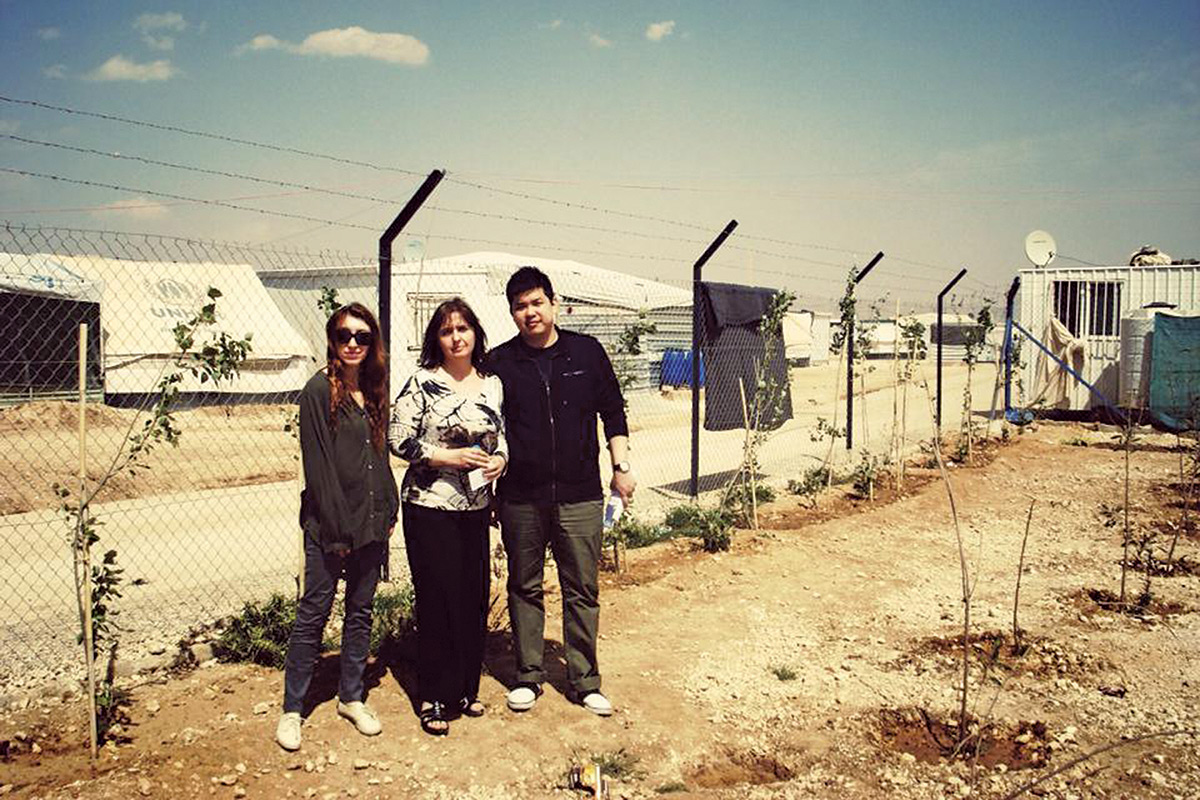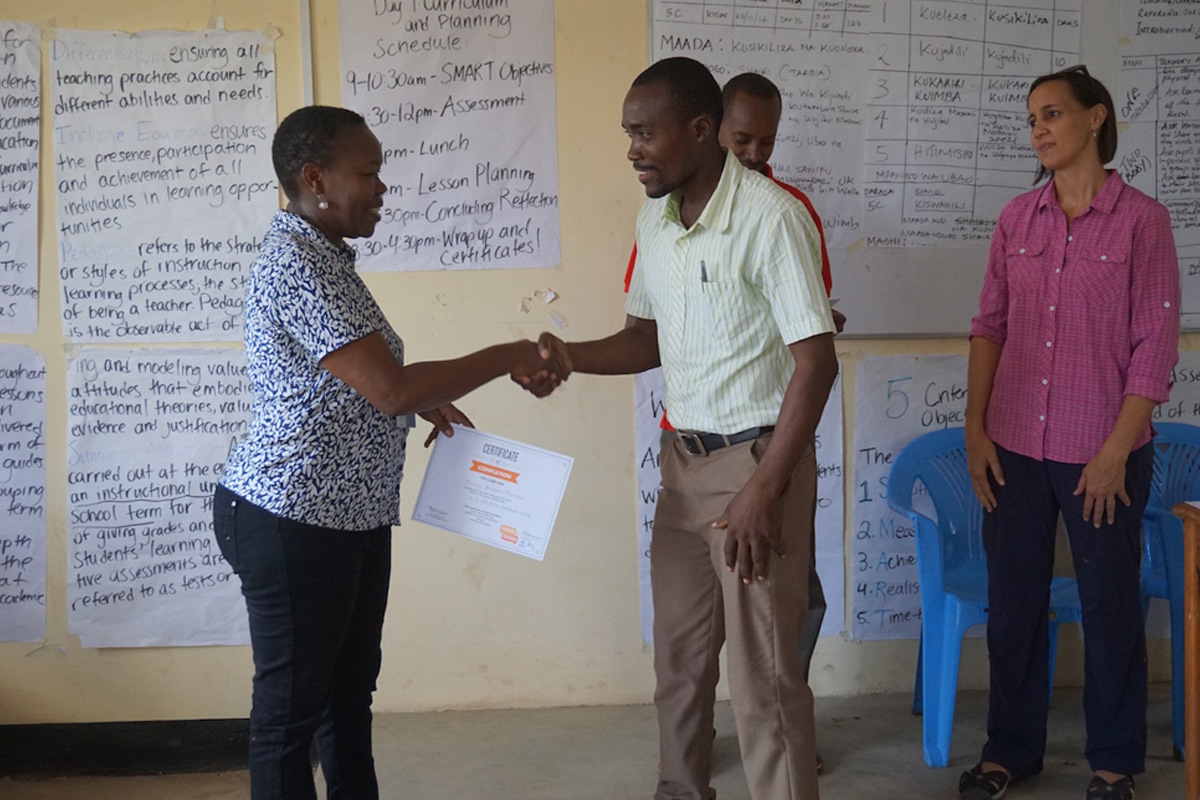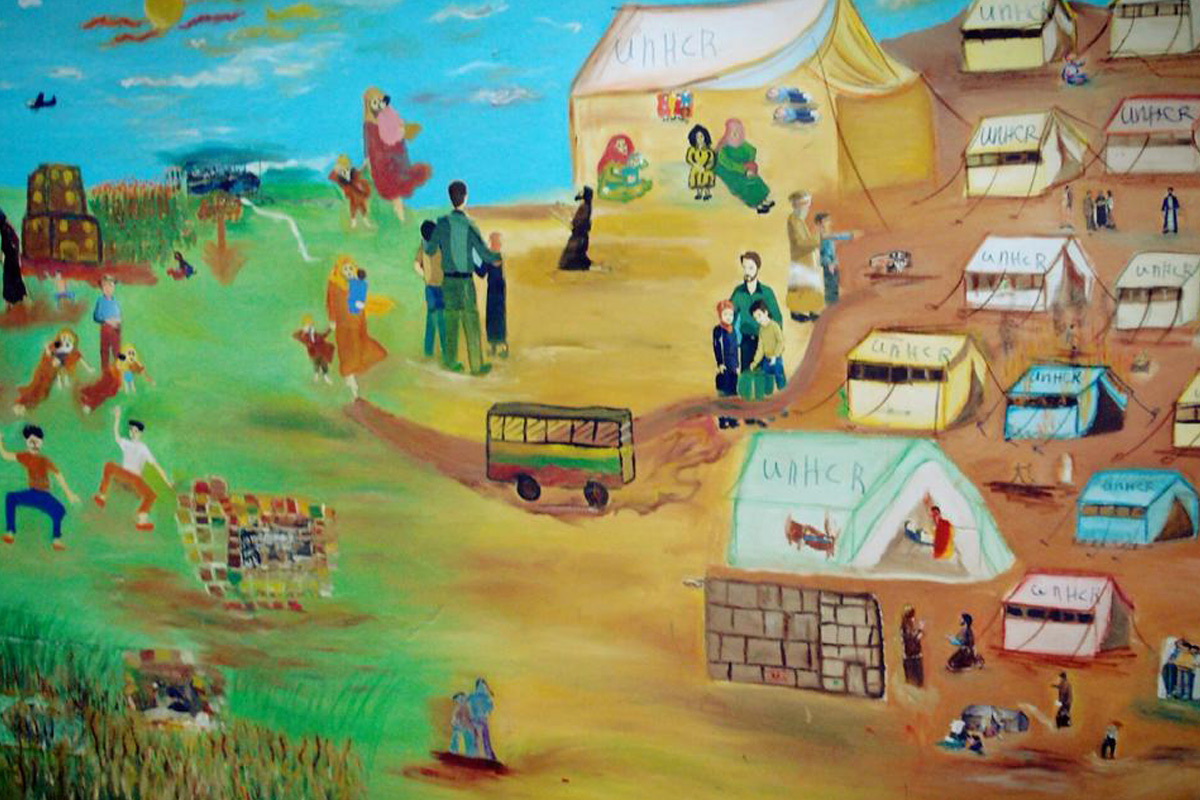More than 70.8 million people around the world have been forced from their homes by violence, persecution and other human rights violations. Nearly 26 million of these individuals are classified as refugees by the United Nations. Only 3 percent of them will ever enroll in a college or university.
To address this crisis, Columbia University is announcing a Scholarship for Displaced Students that will annually provide tuition, housing and living assistance for up to 30 students – including one at Teachers College – who are pursuing undergraduate or graduate degrees across all 18 Columbia schools and affiliate institutions. At TC, the scholarship will be offered to a student pursuing a Master of Arts degree in the International and Comparative Education program. This University-wide scholarship is unprecedented in Columbia’s history and is the first such initiative in the world.

ON THE GROUND TC psychologist Lena Verdeli (center) and her students have provided psychosocial support to refugees around the world. (Photo: TC Archives)
“Teachers College was founded to help immigrants, refugees and other newcomers adapt to and thrive in American society, and we were also the birthplace of the field of Comparative and International Education,” says TC President Thomas Bailey. “With our track record of accomplishments in those areas and extensive engagement today providing educational, psychological and health services to refugees, asylum seekers and others in nations around the globe, it is especially meaningful for us to participate in Columbia’s Scholarship for Displaced Students initiative.”
Teachers College was founded to help immigrants, refugees and other newcomers adapt to and thrive in American society... It is especially meaningful for us to participate in Columbia’s Scholarship for Displaced Students initiative.
—President Thomas Bailey
“We are very proud of the Columbia Scholarship for Displaced Students,” says Columbia University President Lee C. Bollinger. “The program sends a powerful message about the role that colleges and universities should be playing to help young people whose educations have been disrupted because they have been forced to flee violence and persecution in their home countries.”

PROVIDING HOPE THROUGH LEARNING TC international educator Mary Mendenhall (far right) has completed a major effort to teach teachers working in camps for displaced people. (Photo: TC Archives)
Administered by the Columbia Global Centers, the program, which Bollinger believes has the potential to transform global education for displaced students, represents a significant investment of resources and cuts across schools, disciplines and demographics. It also builds on work that Teachers College, as well as Columbia’s Law School, Mailman School of Public Health, School of Social Work, School of International and Public Affairs and Earth Institute are doing on issues related to forced migration.
TC faculty currently working on issues related to global displacement include:
- Mary Mendenhall, Associate Professor of Practice in the Department of International & Transcultural Studies, who spearheaded “Teachers for Teachers,” a groundbreaking Teachers College initiative that has improved learning for 30,000 students occupying Kenya’s remote Kakuma refugee camp. Mendenhall has organized and will moderate a panel this December, at the first Global Refugee Forum (co-sponsored by Teachers College), on supporting teachers in crisis contexts. The conference marks the first year since the United Nations High Commission on Refugees (UNHCR)’s Global Compact on Refugees was signed.
- S. Garnett Russell, Assistant Professor of International & Comparative Education and director of the George Clement Bond Center for African Education, whose recent book, Becoming Rwandan: Education, Reconciliation, and the Marking of a Post-Genocide Citizen, examines the aftermath of the Rwandan genocide and the government’s mixed results in using the education system in order to sustain peace and shape future generations.
- Lena Verdeli, Associate Professor of Psychology & Education and Director of TC’s Global Mental Health Lab. Verdeli and her students have been global leaders in applying Interpersonal Therapy (ITP) to help both refugee and host populations in Lebanon, Bangladesh and other nations.
Teachers College faculty co-founded the Comparative and International Education Society in the 1950s, and three current faculty members have served as CIES Presidents: Henry Levin, William Heard Kilpatrick Professor Emeritus of Economics and Education; Gita Steiner-Khamsi, Professor of Education; and Regina Cortina, Professor of Education.
We are so grateful for the opportunity to provide a scholarship for a displaced student who may ultimately support similarly displaced individuals and communities in need.
—Provost Stephanie J. Rowley
“TC faculty, students and alumni are at the forefront of tackling the challenges that global populations are increasingly experiencing as a result of war, political conflict and natural disasters,” says Stephanie J. Rowley, TC Provost, Dean and Vice President of Academic Affairs. “We are so grateful for the opportunity to provide a scholarship for a displaced student who may ultimately support similarly displaced individuals and communities in need.”
For more information on this initiative, visit the Scholarship for Displaced Students page on the Columbia Global Centers site.
